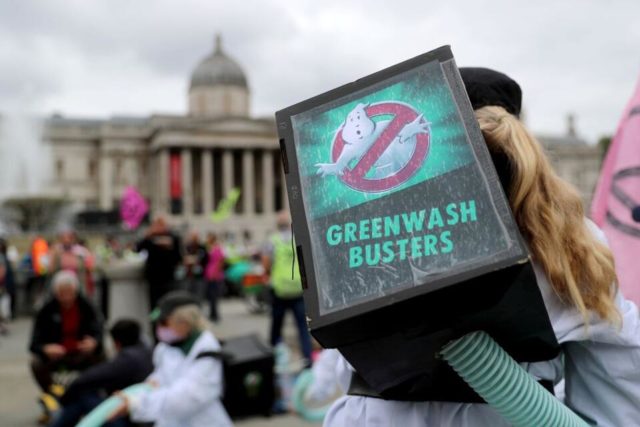The phrase evokes painting something ’green’, or environmentally friendly, and describes exaggerated and misleading claims that suggest a company or country are stewards of the environment without real action.
WHAT seems friendly to the environment but is not? Greenwashing.
The phrase evokes painting something “green”, or environmentally friendly, and describes exaggerated and misleading claims that suggest a company or country are stewards of the environment without real action. As countries gather for the COP26 climate talks in Scotland, tackling it will be one of many items on the to-do list.
WHAT IS IT?
“Eco”, “green”, and “natural” are common phrases of greenwashing. They are used broadly and there is no scientific standard to meet, even though some regulators have tried to set limits. What makes a product “sustainable”?
Items destined for landfill may be “recyclable” even if they are not easy to recycle.
Some of these claims face challenges with regulators, courts and by the public.
An apparel maker that uses recycled fabrics but has coal-powered factories, oil companies claiming to be renewable energy leaders, and cooking oil made with genetically modified organisms but branded as “natural” are examples that could or have faced legal challenges, according to a 2021 review by law firm Quinn Emanuel.
Investment companies face regulatory scrutiny of their claims of environmental credentials of their stock funds, it noted.
HOW MUCH OF IT IS THERE?
A review of websites by global consumer authorities found four in 10 promoting products and services in a way that could be misleading, Britain’s Competition and Markets Authority said.
WHAT’S A CONSUMER TO DO?
Look for claims that can be, and are, verified.
“Make sure that these claims are made or validated by a third party,” such as a non-profit, said Cynthia Cummis, co-founder of the Science Based Targets initiative, which works with companies to set emissions targets.
Investigate how a group is cutting its own emissions, she said. “Look at their broader policies and actions, rather than just the narrow claim that they’re making around maybe one product.”
IS THERE A BIGGER PROBLEM?
When greenwashing undermines confidence in consumer goods, companies and governments, it becomes more difficult to convince people that their actions matter.
– REUTERS








